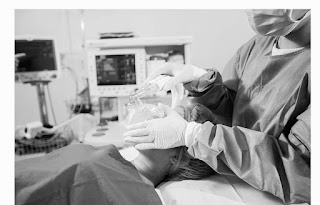Resuming sex after a heart attack
After a heart attack or revascularization procedure, many people wonder whether it will be safe to resume sexual activity, and if so, when. They may worry about having another heart attack, or about dying during intercourse. If they have had bypass surgery, they may worry that sexual activity might be painful. Despite the importance of sex in a healthy relationship, many people (including doctors) are uncomfortable discussing it. As a result, questions go unasked, and information is not volunteered. The whole issue becomes the elephant in the room.
The American Heart Association (AHA) felt that evidence-based recommendations might help doctors initiate discussions on this important topic. The AHA commissioned a committee of experts in various fields to review studies and determine what is known on the topic. The resulting comprehensive statement on sexual activity and cardiovascular disease answers most questions people are too embarrassed to ask. "I think the guidelines are excellent. They provide practical advice. Where there is no research evidence to give clear guidance, the guidelines offer useful recommendations in these gray areas. They are worth review by partners as well as patients, since spouses and significant others are often afraid to resume sexual activity out of concern they will harm the patient," says Harvard Heart Letter co-editor Dr. Thomas Lee. We summarize some of the key points here. The entire document can be found in the February 28, 2012 issue of Circulation.
Q. How stressful is sex on the heart?
A. Men and women have similar heart rate and blood pressure responses to sexual arousal. In young, healthy people, the physical demands of intercourse are equivalent to those of climbing two flights of stairs. In older people and people with cardiovascular disease, the effort may require greater exertion. Nevertheless, at any age, the greatest increase in heart rate and blood pressure occurs for only 10–15 seconds during orgasm, after which they quickly return to baseline. Q What is the risk of heart attack during sex?
Less than 1% of all heart attacks occur during sexual activity. In men, the risk is as low for those who have suffered a heart attack as it is for those without coronary artery disease. A sedentary lifestyle increases the risk, but to a much greater extent in women than in men. The good news is that having sex regularly lowers the risk, likely by improving exercise capacity.
Q. What is the risk of dying during intercourse?
A. Only 0.6% to 1.7% of deaths occur during intercourse, and the factors that increase risk have been clearly identified. According to the AHA report: "Of the subjects who died during coitus, 82% to 93% were men, and 75% were having extramarital sexual activity, in most cases with a younger partner in an unfamiliar setting and/or after excessive food and alcohol consumption."
Q. Is sex safe after a heart attack?
A. If you have no symptoms of heart disease, can pass a stress test without experiencing angina, or have undergone complete coronary revascularization with bypass surgery, you are at low risk of having a heart attack during sex. Q When can I resume sex after a revascularization?
After angioplasty and stenting, the site where the catheter was inserted may determine how quickly you resume sexual activity. If the procedure was done through your groin, you should wait until the puncture site has healed. If it was done through your arm, you may not need to wait any longer than a few days. After open coronary artery bypass surgery, sexual activity should be delayed until your breastbone has healed, usually 6–8 weeks. For several months thereafter, you should avoid any position that puts stress on your chest. If you had minimally invasive or robotic surgery, however, you may resume sexual activity as soon as you feel ready.
Q. When is sexual activity unsafe?
A. If you have unstable angina, worsening heart failure, uncontrolled arrhythmias, or significantly symptomatic or severe cardiovascular disease, you should not engage in sexual activity until your condition is stable and optimally managed.
If you experience cardiovascular symptoms during sexual activity, stop. See your doctor, and do not resume sexual activity until your condition is stable.
Q. What can I do to lower my risk?
A. Although the risk of heart attack or death from sexual activity is low, you may be able to lower it further by improving your stamina. This will make the physical exertion less demanding on your heart. If you have stable cardiovascular disease, the best way to improve your stamina is through a cardiac rehabilitation program followed by regular, doctor-approved exercise. Exercise will also reveal how much exertion you can tolerate, which will tell you how much activity is safe for you.
5 things you should know about sex and your heart
Source:www.health.harvard.edu
|



